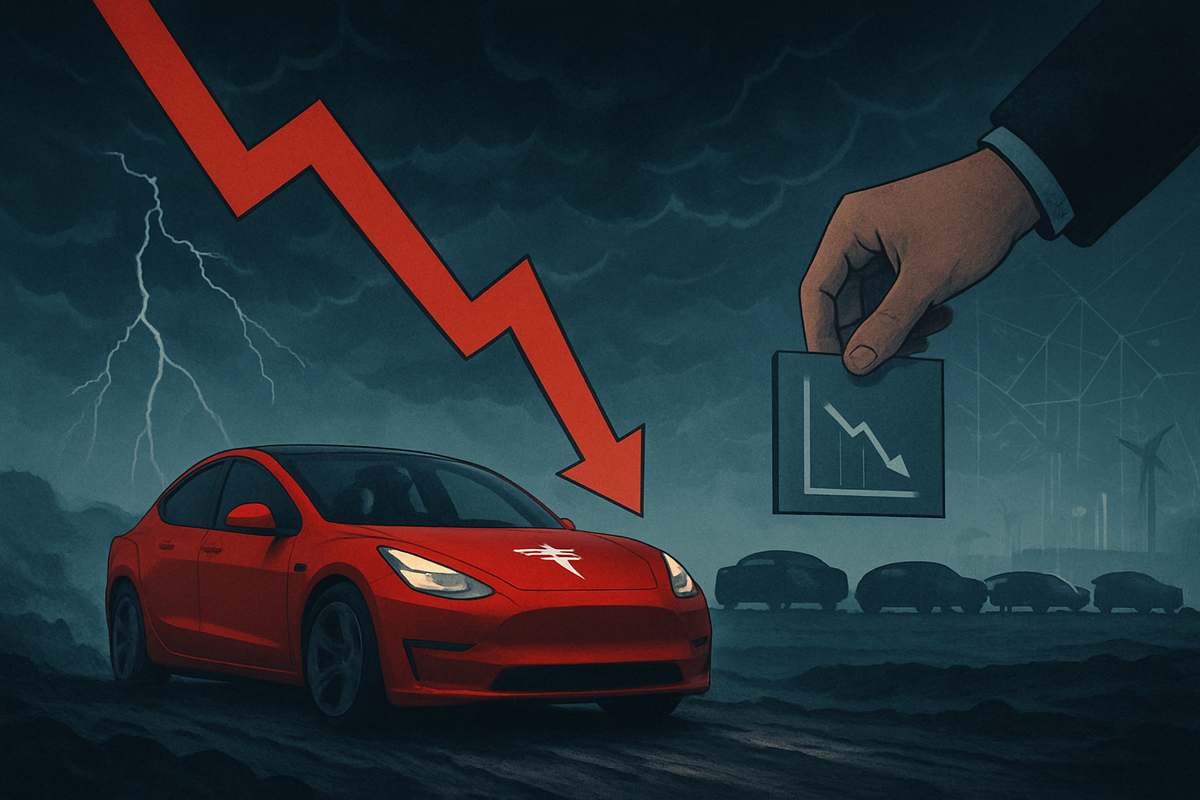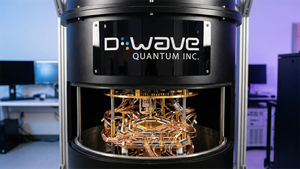
Tesla (NASDAQ: TSLA) has recently experienced a notable dip in its stock performance, signaling a critical juncture for the electric vehicle (EV) giant amidst intensifying competition and evolving market dynamics. This downturn has been exacerbated by the strategic decision of prominent investor Cathie Wood, through her ARK Invest funds, to significantly cut her stake in the company. These events, unfolding in early November 2025, reflect a broader recalibration of investor expectations as the EV market matures and Tesla aggressively pivots towards artificial intelligence (AI) and robotics.
The recent volatility in Tesla's stock price, including a 3.5% decline in the week leading up to November 13, 2025, and a 4.8% drop on November 7, comes at a time when the company faces headwinds from declining sales in crucial markets like China. This confluence of factors has sparked discussions across financial markets regarding Tesla's immediate future and the wider implications for the automotive and technology sectors.
Unpacking the Recent Turbulence: A Detailed Look at Tesla's Challenges
Tesla's stock dip in early November 2025 was a culmination of several impactful events. A primary driver was the report of declining sales in China, a market critical to Tesla's global ambitions. October 2025 saw a significant 36% year-over-year drop in Tesla's deliveries in China, bringing the company closer to its first annual decline in the region. Total deliveries from its Shanghai factory, including exports, also fell by 9.9%, with China-made EV sales decreasing nearly 10% from the previous year and a substantial 32% from September.
The stock's decline was not isolated to China's performance. On November 7, 2025, Tesla's stock dropped 4.8% as U.S. markets opened, coinciding with shareholder approval of CEO Elon Musk's substantial pay package. Further dips occurred on November 11 (over 2% down) and November 12 (2.05% decline), pushing the stock 3.5% lower than its price a week prior by November 13. Underlying these movements are persistent valuation concerns, with a forward Price/Earnings (P/E) ratio of 216 times earnings making the stock susceptible to sell-offs. The company's third-quarter 2025 results, reported on October 22, 2025, while showing record revenue growth, also indicated weaker margins, adding to investor apprehension. Executive departures around November 13 further compounded the negative sentiment.
Amidst this backdrop, Cathie Wood's ARK Invest consistently reduced its stake in Tesla (NASDAQ: TSLA), signaling a strategic rebalancing. On November 7, ARK offloaded 71,638 shares, valued at approximately $31.94 million. This was followed by sales of around 5,400 shares on November 10 ($2.4 million), 789 shares on November 11, and a substantial 70,474 shares on November 12, valued at approximately $30.3 million, across its ARK Innovation ETF (ARKK) and ARK Next Generation Internet ETF (ARKW). Wood's rationale for these reductions is rooted in a broader strategy to rebalance Tesla's significant weighting in her portfolio, pivoting investments towards burgeoning AI and chip stocks, as well as other biotechnology and tech companies like Circle Internet Group and Alibaba (NYSE: BABA).
Shifting Tides: Who Wins and Loses in the Wake of Tesla's Challenges
Tesla's recent stock dip and Cathie Wood's strategic stake reduction have sent ripples through the automotive and tech landscapes, creating potential winners and losers as the electric vehicle market matures and investor sentiment shifts.
On the winning side, Chinese EV Manufacturers stand to gain significantly. BYD (SHE: 002594, HKG: 1211), in particular, has emerged as Tesla's most formidable competitor, having surpassed it in global EV sales in some quarters in 2024 and 2025. With its vertically integrated supply chain, aggressive pricing, and diverse portfolio of affordable EVs, BYD is capturing market share, especially in Europe and emerging markets. Other Chinese players like Nio (NYSE: NIO), Li Auto (NASDAQ: LI), and XPeng (NYSE: XPEV) are also gaining traction with innovative technologies and strong delivery increases, challenging Tesla in the premium segment. Brands under Geely/Volvo and MG (owned by SAIC Motor) are also making inroads, especially in Europe.
Traditional Automakers with Strong EV Lineups are also poised to benefit. Companies like Ford (NYSE: F), with its Mustang Mach-E GT and F-150 Lightning, are offering competitive performance and value. BMW (ETR: BMW) (e.g., i4 M50), Porsche (ETR: P911), Hyundai (KRX: 005380) (e.g., Ioniq 5 N), Kia (KRX: 000270) (e.g., EV9), Volkswagen (ETR: VOW3), and General Motors (NYSE: GM) (e.g., Cadillac Lyriq) are leveraging their manufacturing expertise and brand loyalty to expand their EV offerings, directly challenging Tesla's market share.
Furthermore, Other Pure-Play EV Startups such as Rivian (NASDAQ: RIVN), Lucid (NASDAQ: LCID), and Polestar (NASDAQ: PSNY) could find opportunities to differentiate themselves, particularly if Tesla's struggles are perceived as a broader shift in market leadership. Finally, AI and Semiconductor Companies like Taiwan Semiconductor (NYSE: TSM) and Baidu (NASDAQ: BIDU) are seeing increased investment from firms like ARK Invest, indicating a belief that these sectors, particularly in self-driving technology and AI infrastructure, are the next major growth catalysts.
Conversely, Tesla (NASDAQ: TSLA) itself faces significant challenges from this dip, reflecting investor concerns over slowing growth, intense competition, and margin pressure. Its declining market share, especially in China, directly impacts revenue and profitability. Suppliers highly dependent on Tesla could also face headwinds if production or sales significantly decline. Other Overvalued EV Startups might experience increased investor scrutiny and a broader pullback if the market leader faces a downturn. Lastly, Investment funds or individuals with significant exposure to Tesla stock would naturally incur losses during such a dip, highlighting the risks of concentrated portfolios.
Beyond the Headlines: Wider Significance in a Transforming Market
The recent stock dip in Tesla (NASDAQ: TSLA) and Cathie Wood's decision to trim her stake extend far beyond the immediate financial implications for the company. These events underscore a pivotal moment in the broader automotive and technology industries, reflecting maturing market trends, potential ripple effects, evolving regulatory landscapes, and historical parallels.
One of the most significant broader industry trends highlighted is the maturation of the EV market and intensifying competition. While global EV sales continue to rise, the market is no longer solely dominated by Tesla. Legacy automakers like General Motors (NYSE: GM) and Ford (NYSE: F), alongside a burgeoning array of Chinese manufacturers such as BYD (SHE: 002594, HKG: 1211), are introducing highly competitive and diverse EV models. Tesla's U.S. market share, for instance, dipped to 44.7% year-to-date in 2025, indicating that the market is becoming more discerning, prioritizing factors like price, range, and features. The increasing popularity of hybrid EVs also signals evolving consumer preferences and the industry's adaptation to concerns around affordability and range anxiety.
Another critical area is the scrutiny on autonomous driving and AI. Tesla's long-term valuation heavily relies on the success of its Full Self-Driving (FSD) capabilities, robotaxis, and robotics. A significant stock dip, particularly if linked to concerns about the scalability, safety, or regulatory approval of these technologies (such as the Cybercab or FSD v14.3), could prompt increased scrutiny from investors and regulators. The market is actively assessing the transition of "story stocks" – those valued on future potential – to demonstrating consistent earnings resilience and sustainable cash generation, especially in the AI space. Tesla's growing energy storage division also gains importance as a critical diversifier, highlighting its role as an an "energy company" beyond just an automaker.
The ripple effects on competitors and partners are substantial. For traditional automakers, a Tesla dip might validate their more diversified strategies and encourage further acceleration of their electrification plans, potentially intensifying price competition. Conversely, smaller EV startups could face mixed impacts; while funding might become harder to secure, opportunities for differentiated offerings could emerge. Companies focused on AI and autonomous vehicle (AV) technology, such as Waymo (owned by Alphabet (NASDAQ: GOOGL)) or Cruise (GM's AV unit), might see increased investor interest if Tesla's AV narrative falters. Suppliers of EV components and battery technology could experience demand fluctuations, leading to renegotiations or a shift in focus towards other growing EV manufacturers.
From a regulatory and policy perspective, if Tesla's stock dip is tied to FSD safety concerns, it could lead to stricter oversight, slower approval processes, or increased liability debates for autonomous driving systems globally. A perceived slowdown for a major EV player might also trigger a re-evaluation of government incentives and subsidies for EV adoption, as seen with some European countries considering cuts in 2025. The increasing integration of AI in vehicles also necessitates evolving regulatory frameworks around data privacy, cybersecurity, and ethical AI, with developments like the UK's Data (Use and Access) Act 2025 becoming more urgent.
Historically, this situation draws parallels to the Dot-Com Bubble of the 2000s and other tech corrections, where overvalued "story stocks" experienced massive losses as the market re-calibrated expectations. In 2025, concerns about AI competition and stretched valuations among "Magnificent Seven" tech stocks have already led to a "current correction." In the automotive industry, disruptions like Henry Ford's mass production or the rise of Japanese manufacturers in the 1970s demonstrate how initial technological leadership can be challenged by mass-market competition and evolving demands. Cathie Wood's decision to cut her stake, despite her long-term bullish view, is particularly notable, suggesting a re-evaluation of Tesla's ability to execute its disruptive vision within the projected timeframe, acknowledging a deeper market shift beyond short-term fluctuations.
The Road Ahead: Navigating Future Possibilities for Tesla and the EV Market
The recent stock dip for Tesla (NASDAQ: TSLA) and Cathie Wood's strategic move to reduce her stake signal a pivotal moment, shaping the short-term and long-term trajectory for Tesla, the broader EV market, and related industries. As of November 2025, the landscape is defined by intensified competition, technological evolution, and strategic pivots.
In the short-term (2025-2026), Tesla faces escalating competition, with its U.S. market share eroding and sales declining in China and Europe due to fierce local players like BYD (SHE: 002594, HKG: 1211), Volkswagen (ETR: VOW3), and Nio (NYSE: NIO). Regulatory headwinds, such as expiring U.S. federal EV tax credits and reduced European subsidies, could further impact affordability and adoption. However, key growth drivers include the planned launch of more affordable models (e.g., a "Model Q" priced under $30,000 in H1 2025), the expansion of its Full Self-Driving (FSD) capabilities and Robotaxi service (with a paid launch in Austin by June 2025 and Cybercab volume production targeted for 2026), and the robust growth of its energy storage business.
Looking long-term (beyond 2026), Tesla's valuation is increasingly tied to its success in AI-driven innovations. The long-term vision includes dominance in FSD, Robotaxis, and the Optimus humanoid robot (with external deliveries potentially starting late 2025). The energy storage segment, with projected revenue doubling to $18 billion by 2026, is poised to become a significant and stable income source. Continued expansion of Gigafactories and advancements in battery technology aim to enhance cost efficiency and scalability. Tesla is also exploring diversification into new segments, including fleet operators and commercial vehicles with the development of an autonomous electric "Robovan."
For the broader EV market, continued growth is projected, with global sales expected to increase by nearly 30% in 2025. China will remain a dominant force, while emerging markets like India, Thailand, and Indonesia are accelerating EV adoption. Battery advancements, particularly solid-state batteries entering commercialization, present significant opportunities. However, challenges persist, including affordability and consumer adoption concerns, the need for massive investment in charging infrastructure, and supply chain issues for raw materials. The resurgence of hybrid vehicles in some markets also adds a layer of complexity to the pure-EV transition.
Related industries will also see significant shifts. Battery manufacturers face growing demand but also overcapacity, driving down costs. Charging infrastructure providers are set for substantial growth, requiring massive investment. The semiconductor industry will benefit from Tesla's shift to external AI chip partnerships (e.g., NVIDIA (NASDAQ: NVDA), AMD (NASDAQ: AMD), Samsung (KRX: 005930)). Traditional automakers will continue to intensify their EV offerings, directly challenging Tesla.
Potential scenarios range from Tesla's AI-driven transformation succeeding, solidifying its position as a diversified technology and energy giant, to Tesla facing execution challenges with AI/robotics, leading to continued stock volatility and struggles in its core EV business. The broader EV market could either continue strong, diversified growth, with various technologies coexisting, or a slowdown could persist in key developed regions, leading to an uneven global transition.
Navigating the New Era: A Comprehensive Wrap-up for Investors
Tesla's (NASDAQ: TSLA) recent stock dip and Cathie Wood's strategic stake reduction mark a significant turning point, underscoring the maturation of the electric vehicle market and a critical re-evaluation of high-growth tech valuations. As of November 2025, the narrative around Tesla is shifting from pure EV dominance to an ambitious, yet unproven, AI and robotics powerhouse.
Key Takeaways: The recent stock volatility reflects a confluence of factors: intensified competition from both established automakers and aggressive Chinese EV players, declining sales in key markets like China, and persistent margin pressures from price cuts. Cathie Wood's ARK Invest, a long-time Tesla bull, has strategically trimmed its holdings, signaling a portfolio rebalancing towards AI and semiconductor companies, suggesting a cautious stance on Tesla's near-term valuation despite long-term conviction in its disruptive potential. The market is increasingly demanding sustainable profitability and clear execution, moving beyond the "growth-at-any-cost" mentality that once fueled Tesla's meteoric rise.
Assessing the Market Moving Forward: The EV market is evolving rapidly. While global adoption continues to grow, it faces challenges such as affordability, charging infrastructure gaps, and supply chain complexities. The rise of hybrid vehicles and the strong performance of competitors indicate a more fragmented and competitive landscape. Tesla's future hinges on its ability to successfully execute its pivot into AI, autonomous driving (FSD, Robotaxi), and robotics (Optimus), as well as the continued growth of its energy storage business and the successful launch of more affordable EV models. The market will be closely scrutinizing whether these ambitious ventures can translate into tangible, profitable revenue streams.
Significance and Lasting Impact: This period signifies a crucial transition for Tesla from a disruptive innovator to a more established, yet still highly ambitious, automotive and technology player. The lasting impact will likely be a more discerning market for EV and AI-related stocks, where fundamental financial health, clear paths to profitability, and demonstrated execution will be paramount. For the broader industry, it accelerates the trend of diversification in EV offerings and a heightened focus on advanced technology beyond just battery-electric powertrains.
What Investors Should Watch For in Coming Months: Investors should closely monitor Tesla's upcoming quarterly delivery and earnings reports, paying particular attention to gross margins in its automotive segment and the financial performance of its energy business. Crucial will be updates on the rollout and market reception of its Robotaxi service and any significant advancements or regulatory approvals for its FSD software and Optimus robot. Tesla's performance in the Chinese market against local competitors will remain a key indicator. Furthermore, keep an eye on the competitive landscape, including new EV models and pricing strategies from rivals, and any shifts in government incentives or broader macroeconomic trends that could impact consumer demand.
This content is intended for informational purposes only and is not financial advice






